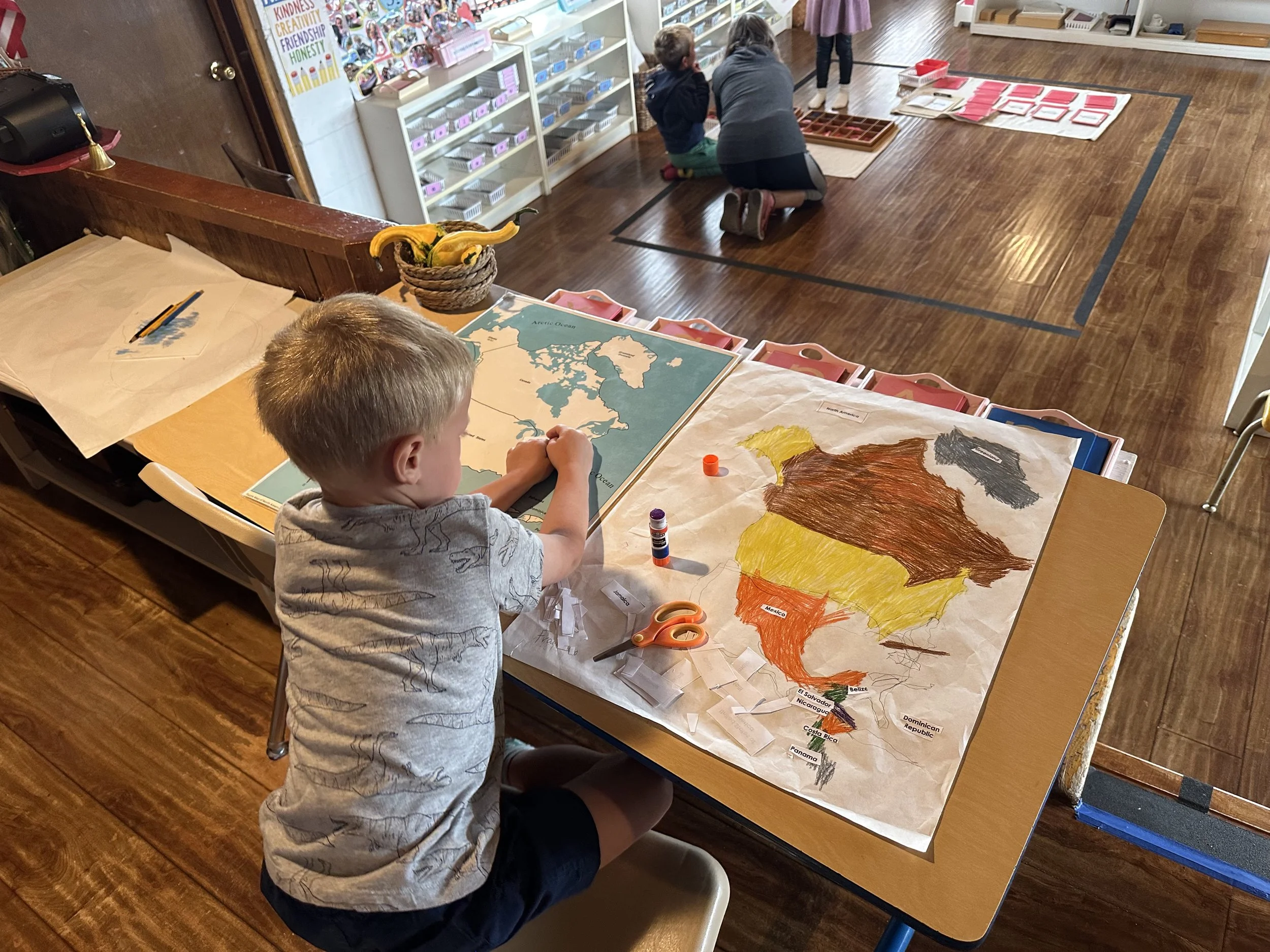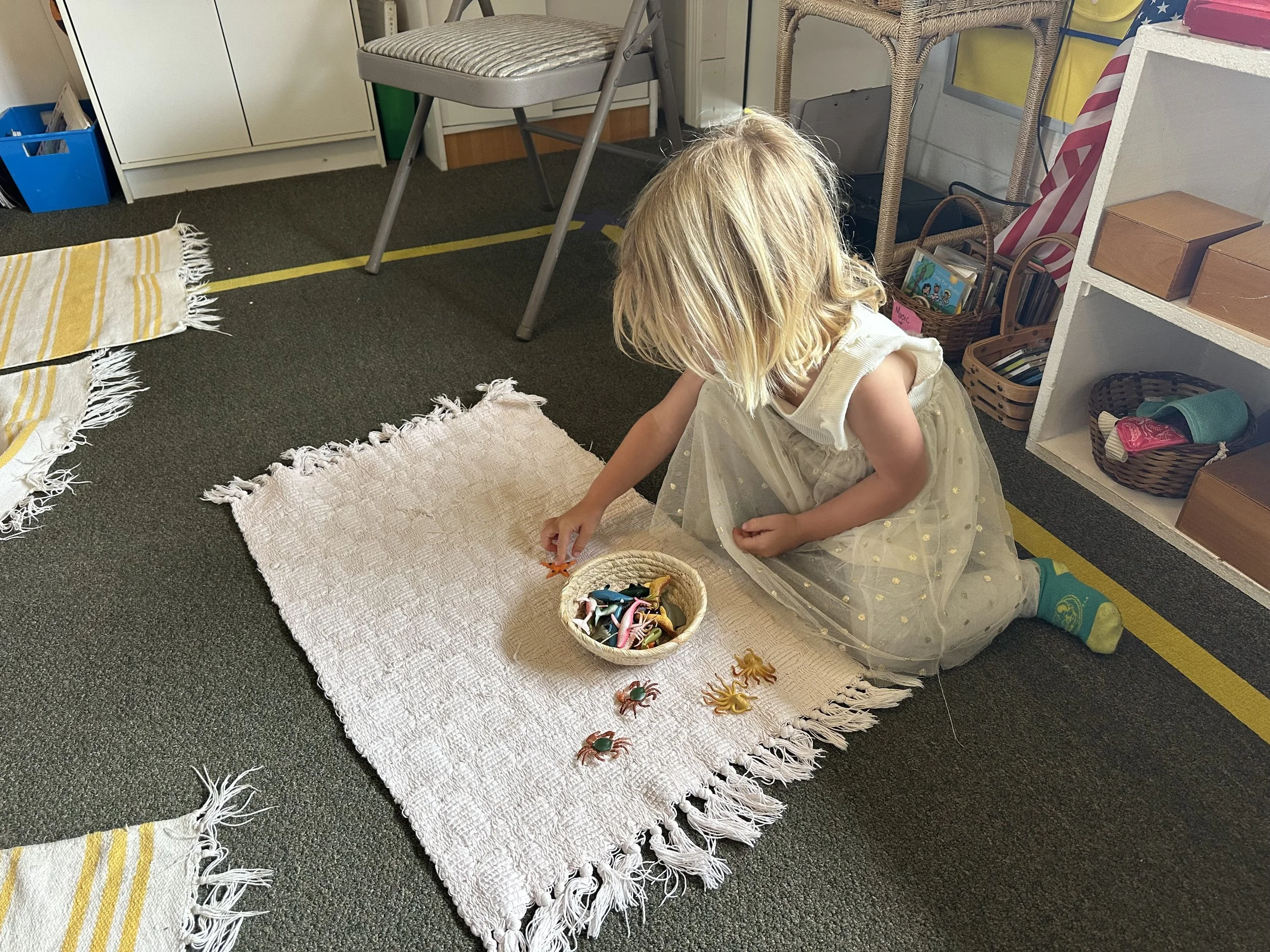Our Montessori Program
The Montessori approach to education was founded by Dr. Maria Montessori (1870-1952). Through her own education and experiences, she cultivated a vision to educate others through fostering independence, meeting one’s inner needs, and building a natural curiosity to learn.
Thus, our school aims to create a “Prepared Environment” where children learn to love to learn through their ability to choose their lessons. Children are placed in classrooms that vary in age and gender to promote socialization with others and build mentorship between the older and younger children. Dandy Lion Montessori School has two classrooms, named the Rainbow and Sunshine Room, where children are able to grow in their learning journey.
Through using the Montessori curriculum, we are able to help children grow to be effective communicators, curious to learn, and embrace their individuality.
Learn more about our program below:
-
These are activities, which satisfy the child’s tendency to imitate and develop coordination of movement, independence, self-confidence, body consciousness, self-care and self-awareness, the social skills of grace and courtesy, awareness of, and care for the environment - indoors and outdoors - dealing with and solving of difficulties, concentration and attention, order and positive attitudes towards learning.
-
These are activities for the development and refinement of the senses. The materials isolate one single physical quality from the environment (e.g. dimension, color, shape, or texture). Focusing on the use of one sense at a time, (e.g. visual, auditory, tactile, etc.) enables the child to exercise and refine each sense to the utmost. This refinement is essential for the development of the mathematical mind (i.e., the ability to discriminate differences, similarities, and identities), and for the development of the memory, understanding and will, (the faculties of intelligence), the imagination, and consequently the appreciation and interpretation of language and fine arts.
-
The child does not learn mathematics, but discovers them, acquiring the necessary skills to calculate in the decimal system and in other bases, e.g. binary system, by exploration moving from concrete experiences to abstraction by means of these activities.
-
The child acquires, phonetically, the basic skills for complete writing and reading and at a very early age, understanding of the parts of speech, oral expression, creative writing, and interpretative reading and appreciation of prose and poetry by these activities. The Language area includes also what we call “keys to the cultural subjects,” because once the child is versatile in the use of all the above skills, he possesses the necessary tools to explore the world of knowledge.
-
Geography, Botany, Zoology, Art, and Music expose children to the world and enable them to appreciate the importance and the beauty of nature, the diversity of people and their cultures, and it brings together the creative arts and academics, encouraging free expression.
Student working on creating a map of North America.
Student working on matching sea animal figurines.

